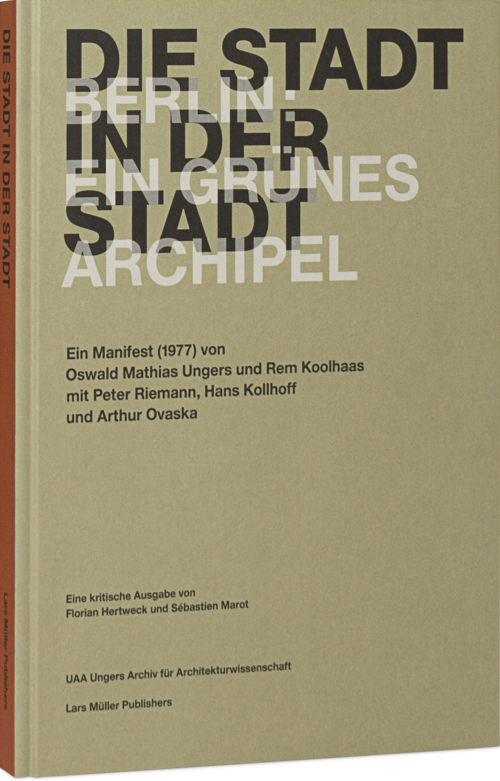
La Ville dans la ville
In the manifesto The City in the City – Berlin: A Green Archipelago, Oswald Mathias Ungers and a number of his colleagues from Cornell University presented the first concepts and intellectual models for the shrinking city. In contrast to the reconstruc- tion of the European city that was popular at the time, they developed the figure of a polycentric urban landscape. However, the manifesto really began to exert an effect beginning in the 1990s onwards, when the focus of the urban planning discourse turned to the examination of crises, recessions, and the phenomenon of demographic shrinking.This critical edition contains a reproduction of the Ungers-manifesto and a previously unpublished version by Rem Koolhaas, as well as interviews with (co-)authors Rem Koolhaas, Peter Riemann, Hans Kollhoff, and Arthur Ovaska. Introductory texts explain the development of the manifesto between Cornell and Berlin, position the work in the planning history of Berlin, and reveal its influence on current approaches.
In the manifesto The City in the City – Berlin: A Green Archipelago, Oswald Mathias Ungers and a number of his colleagues from Cornell University presented the first concepts and intellectual models for the shrinking city. In contrast to the reconstruc- tion of the European city that was popular at the time, they developed the figure of a polycentric urban landscape. However, the manifesto really began to exert an effect beginning in the 1990s onwards, when the focus of the urban planning discourse turned to the examination of crises, recessions, and the phenomenon of demographic shrinking.This critical edition contains a reproduction of the Ungers-manifesto and a previously unpublished version by Rem Koolhaas, as well as interviews with (co-)authors Rem Koolhaas, Peter Riemann, Hans Kollhoff, and Arthur Ovaska. Introductory texts explain the development of the manifesto between Cornell and Berlin, position the work in the planning history of Berlin, and reveal its influence on current approaches.






